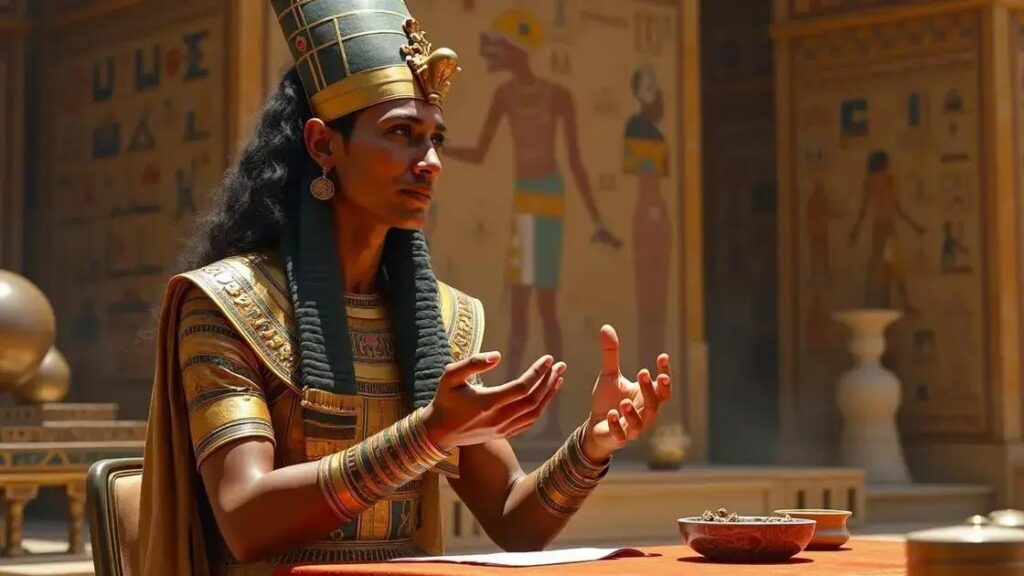The history behind the tricks of the Egyptian Pharaohs reveals their clever use of deception in governance, warfare, and cultural identity, showcasing their tactical ingenuity and lasting influence on ancient and modern society.
The story of the Egyptian Pharaohs is a tale of mystery, clever tactics, and cunning deception. From their architectural wonders to their political maneuvers, these ancient rulers utilized tricks that not only captivated their people but also safeguarded their empires. In this article, we will delve into the fascinating history behind these tricks, exploring key strategies and cultural significance that defined ancient Egyptian leadership.
Ancient Egyptian Rulers and Their Cleverness
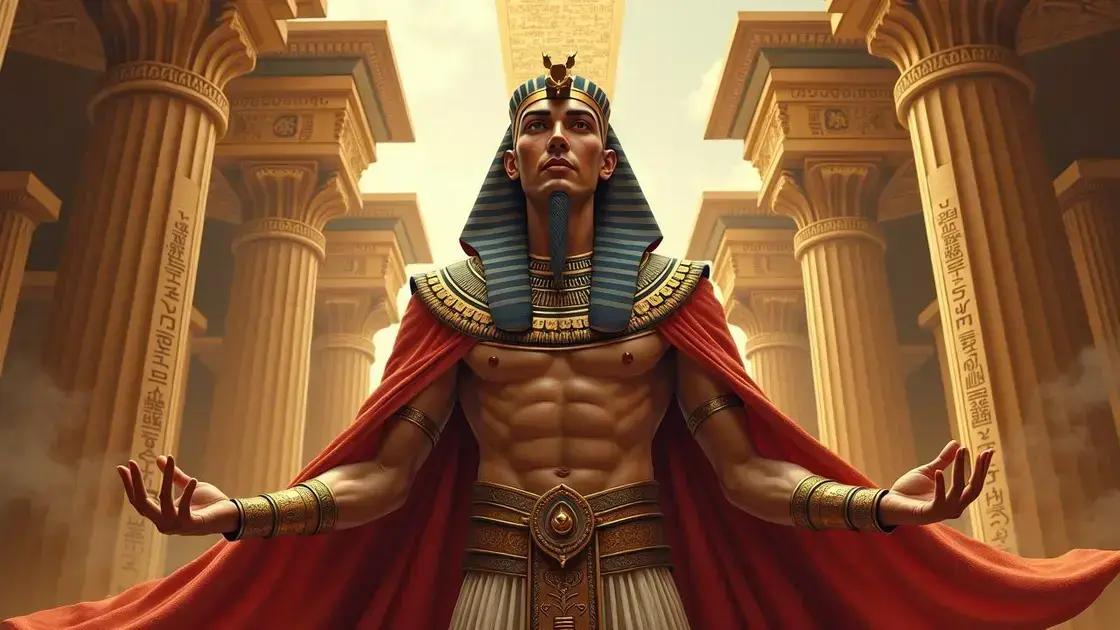
Ancient Egyptian rulers were known for their cleverness and ingenuity. Their ability to govern vast territories and maintain power for centuries is a testament to their intelligence and strategic thinking. Pharaohs utilized a variety of tactics to secure their rule and outsmart their rivals.
Political Savvy
Many rulers displayed great political savvy by forming alliances through marriage and diplomacy. For example, Pharaoh Hatshepsut married her half-brother to solidify her claim to the throne. Such alliances helped to unify the kingdom and strengthen their positions against potential threats.
Innovative Administration
Pharaohs implemented advanced administrative systems to manage resources effectively. They established bureaucracies to oversee agriculture, taxation, and construction projects. This clever organization allowed Egypt to thrive economically, which in turn supported their monumental building projects like the pyramids.
Military Strategies
Ancient Egyptian rulers were also masterful strategists in warfare. They used cavalry and chariots to outmaneuver enemies in battle. Pharaohs like Ramses II were known for their military campaigns, which expanded Egyptian territory and influence.
Cultural Manipulation
Furthermore, the cleverness of these rulers extended to cultural manipulation. They often presented themselves as gods to reinforce their divine right to rule. Temples and monuments were built to immortalize their legacy, giving them a god-like status in the eyes of their subjects.
Famous Tricks Used by Pharaohs
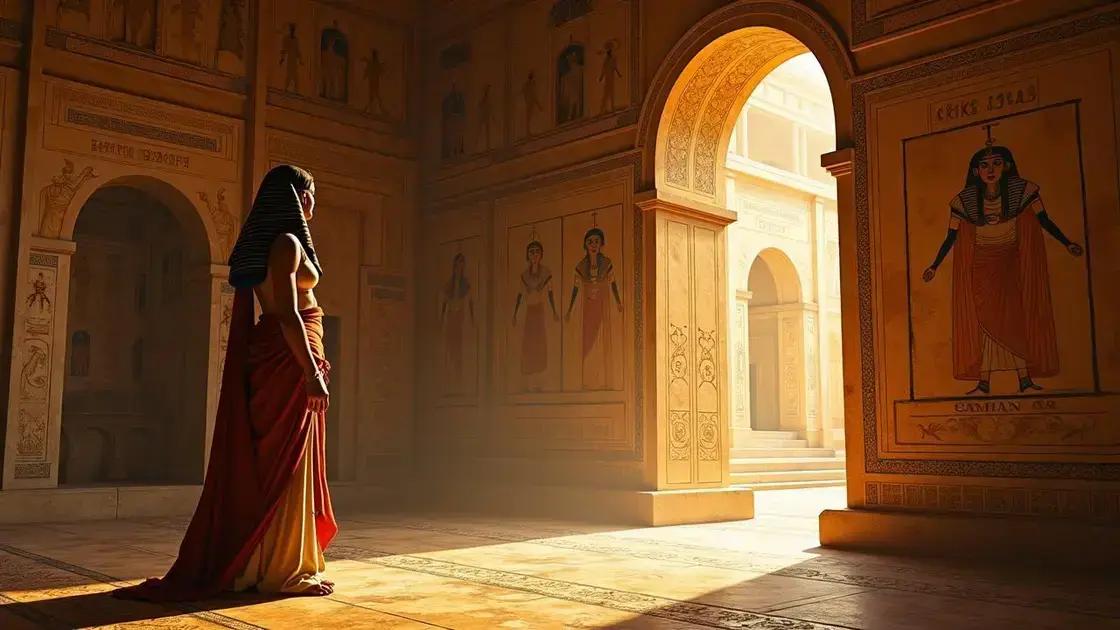
The ancient Egyptian Pharaohs were known for their cleverness and creativity, employing a range of tricks to achieve their goals and maintain power. These tricks were often innovative and surprising, showcasing the intelligence of their rulers.
Using Illusions and Deception
One of the most famous tricks was the use of illusions and psychological warfare. Pharaohs created grand displays during battles to intimidate their enemies. They would sometimes use smoke or fire to create chaos, giving the illusion of superior numbers and strength.
Hidden Chambers
Another interesting trick involved the construction of hidden chambers within tombs and pyramids. These secret spaces were designed to protect treasures from robbers. Pharaohs would often ensure that their burial places included deceptive paths and false chambers to confuse potential thieves.
Media and Propaganda
Pharaohs also mastered the art of propaganda. They painted scenes on temple walls that depicted their victories and divine status. This trick not only served to boost their image but also helped to maintain power by inspiring fear and respect among their subjects.
Strategic Marriages
Moreover, many Pharaohs engaged in strategic marriages to secure alliances and peace with powerful families or neighboring states. By marrying into influential families, they created bonds of loyalty and reduced the probability of conflict. Such clever bonding was essential for maintaining a strong rule over the kingdom.
The Role of Deception in Ancient Egypt
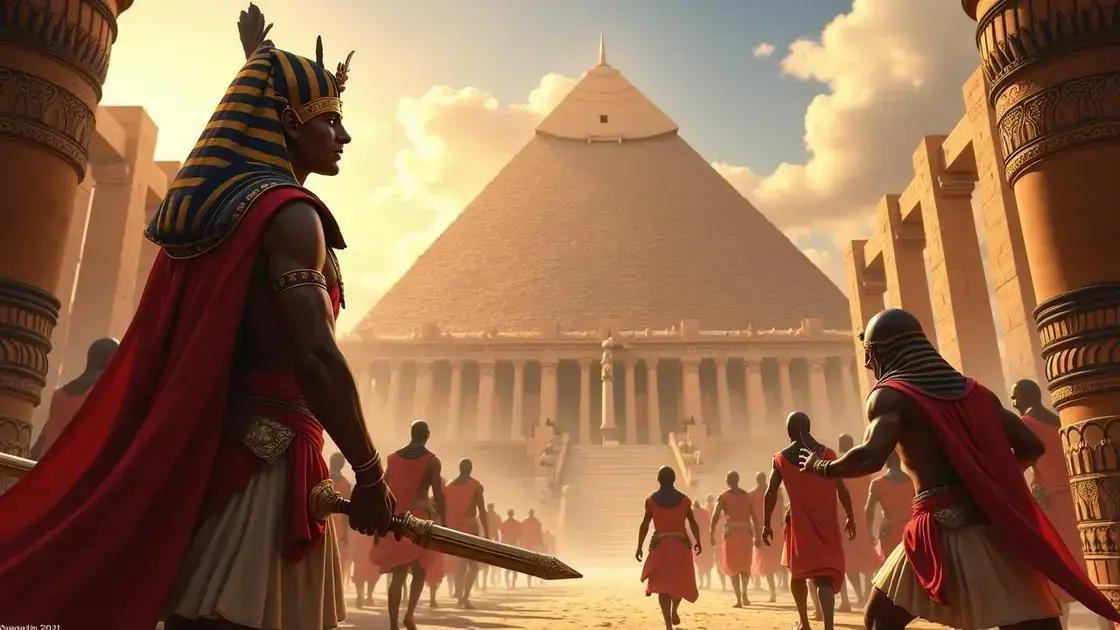
Deception played a significant role in ancient Egypt, particularly in the way Pharaohs maintained control over their subjects and rivals. Manipulation of truth was not only a strategy but also an art form that was reflected in various aspects of Egyptian society.
Political Manipulation
Pharaohs often used deception in political matters. They crafted narratives that painted them as divine beings, chosen by the gods to rule. By promoting this myth, they created an aura of invincibility around their reign, which discouraged rebellion and maintained social order.
Military Deception
In warfare, deception was equally crucial. Pharaohs would employ tactics to mislead their enemies about their true strength and intentions. For instance, they might use decoys or spread false information to misdirect opposing forces. Such strategies ensured a higher chance of victory with fewer actual confrontations.
Religious Deception
Religious deception was also common. Temples were adorned with myths and images that glorified the Pharaoh’s lineage and divine right. This not only kept the populace loyal but also encouraged them to participate in religious practices that reinforced the Pharaoh’s power.
Architectural Illusions
The architectural wonders of ancient Egypt embodied deception as well. The pyramids, for example, served dual purposes as tombs and symbols of grandeur. Their massive sizes created an impression of eternal power, while the complex designs often included hidden chambers to deter tomb robbers. This clever use of architecture was a physical manifestation of deception aimed at preserving the Pharaoh’s legacy.
Cultural Significance of Pharaoh’s Tricks
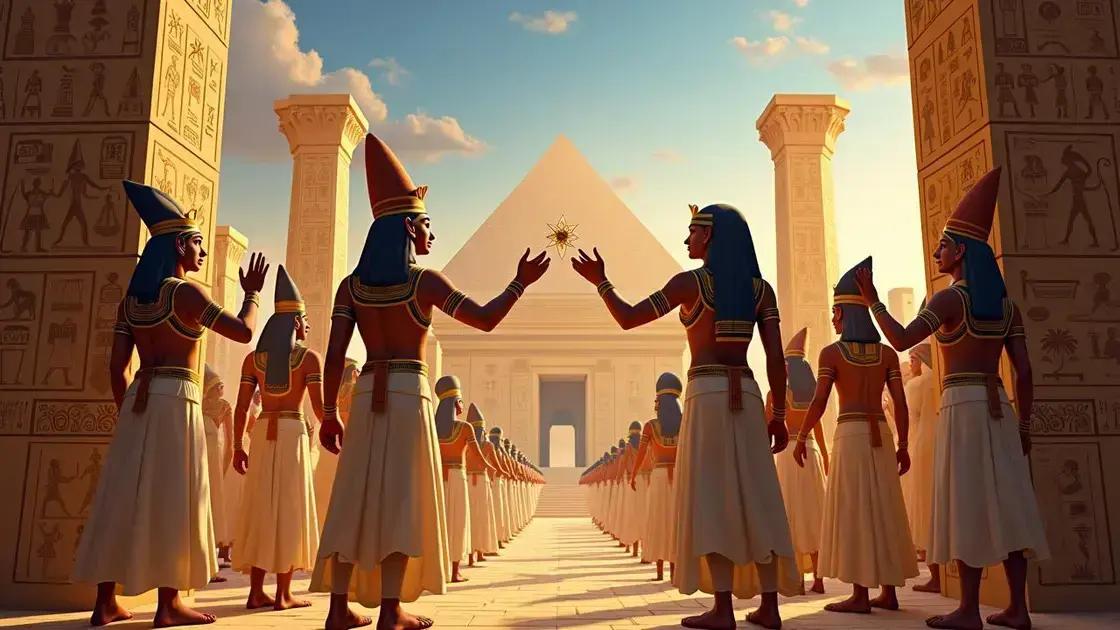
The tricks used by Pharaohs held great cultural significance in ancient Egyptian society. These clever tactics were not only means to maintain power but also deep reflections of their values and beliefs. Cultural identity was shaped by these practices, influencing everything from politics to daily life.
Reinforcement of Authority
Pharaohs’ tricks helped reinforce their authority and divine right to rule. By creating spectacles and manipulating public perception, they maintained a sense of loyalty and fear among the people. Such displays became integral to the cultural identity of Egypt, merging governance with religious belief.
Social Order
Clever strategies also contributed to social order within the kingdom. Pharaohs used deception to settle disputes and maintain peace among rival factions. By cleverly managing relationships, they promoted unity and stability, which were vital for a thriving society.
Inspiration for Art and Literature
The tactics of Pharaohs inspired various forms of art and literature. Stories of their cleverness became intertwined with myths, leading to a rich tapestry of cultural narratives. Artists depicted these tales in temples and tombs, ensuring that future generations would remember the Pharaohs’ ingenuity.
Legacy and Heritage
The cultural significance of these tricks extends to Egypt’s heritage today. From pyramids to monuments, the clever designs and ideas of the Pharaohs continue to intrigue archaeologists and historians. Their influence can be seen in contemporary culture, as the fascination with their cunning tactics remains alive in modern storytelling and media.
The Enduring Legacy of Egyptian Pharaohs’ Tricks
The history behind the tricks of the Egyptian Pharaohs reveals a complex relationship between cunning strategies and cultural significance. These tactics were essential for maintaining power, reinforcing authority, and shaping the cultural identity of ancient Egypt.
Through innovative methods of deception, Pharaohs not only secured their rule but also inspired artistic expression and storytelling that continues to resonate today. Their cleverness in governance, warfare, and public perception created a rich legacy that informs our understanding of ancient civilizations.
As we explore these historical tactics, we gain insight into the values and beliefs that defined an era. The tricks of the Pharaohs not only captured the imagination of their contemporaries but also left an indelible mark on history that still captivates us today.
FAQ – Frequently Asked Questions about the Tricks of the Egyptian Pharaohs
What were some famous tricks used by the Pharaohs?
Pharaohs used tricks such as military deception, political manipulation, and hidden chambers in tombs to secure their power and protect their treasures.
How did Pharaohs use deception in governance?
Pharaohs employed deception by creating grand spectacles and propagating myths about their divine right to rule, which helped maintain loyalty and control among the populace.
What role did deception play in ancient Egyptian warfare?
In warfare, deception was crucial; Pharaohs used tactics like misinformation and illusions to mislead enemies and enhance their battle strategy.
How did tricks contribute to the cultural identity of ancient Egypt?
The tricks of the Pharaohs reinforced authority and became integral to the cultural identity, influencing art, literature, and societal values in ancient Egypt.
What is the significance of hidden chambers in tombs?
Hidden chambers were built to protect the Pharaoh’s treasures from robbers, showcasing their cleverness and belief in an afterlife where these items would be needed.
Why are the Pharaohs’ tricks still relevant today?
The cleverness and strategies of the Pharaohs continue to captivate historians and influence modern storytelling, highlighting the enduring legacy of their rule.

